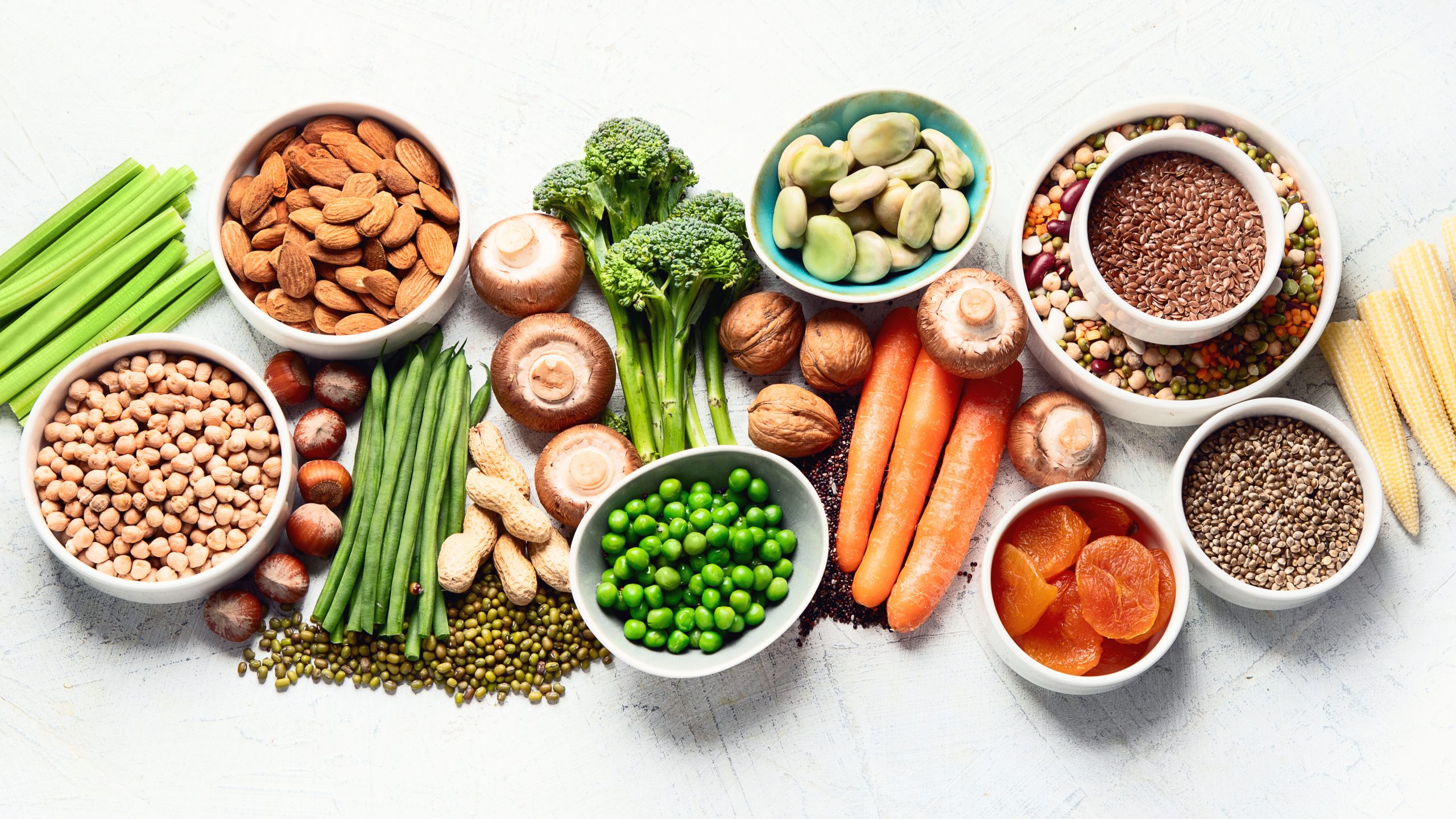March is National Nutrition Month and we want to spread awareness to the importance of a well-balanced diet for children’s health, development, and growth. All kids need an adequate amount of vitamins, minerals, protein, fiber, complex carbohydrates, and healthy fats every day. Today, some kids and families are choosing to adopt a plant-based diet. And while all kids will benefit from a nutritional plan, vegetarians and vegans will need specific considerations.
A plant-based diet is safe during any life stage and can even be beneficial in many ways. Children who become vegan or vegetarian tend to have more room in their diet for vegetables and fruits. But, not all plant-based products are healthy such as processed foods. Regardless if your child chooses a plant-based diet or not, it is best that their diet consists mostly of whole foods. Whole foods provide children with a range of nutrients, while processed foods remove some of the nutrients and contain artificial ingredients.
There are many whole food sources of plant-based protein, including legumes (such as beans, peas, and lentils), nuts, soy foods (such as tofu, edamame, and tempeh), and chia seeds and flaxseeds. Complex carbohydrates and grains like quinoa, brown rice, wheat or multi-grain breads, and whole wheat pasta can also provide protein, especially when paired with other sources. These foods provide fiber as well. For vegetarians, dairy products such as cheese and yogurt are also good protein options.
In addition to protein, many of these foods offer other essentials. Nuts, chia seeds, and flaxseeds are great sources of healthy fats. Children can also get their fats from hummus and avocados, which can be combined with vegetables to make healthy snacks in between meals. Vegetables, as well as fruits, are important for everyone as they provide fiber, vitamins, and minerals. Vegetarians and vegans can get calcium from eating leafy greens such as kale and spinach, broccoli, and sweet potatoes.
When planning a plant-based diet, iron is an important mineral to pay attention to. If your child does not get enough iron, they can get iron-deficiency anemia, causing fatigue and low energy. Iron is commonly found in meat, particularly heme iron which is more readily absorbed. However, it is still possible to get enough iron in a vegetarian or vegan diet. Good sources of iron include beans, leafy greens, tofu, dried fruits, and fortified cereals. Iron can be better absorbed when combined with vitamin C, so it’s best to add foods rich in vitamin C to your children’s meals. These include fruits like oranges, strawberries, kiwi, pineapple, papaya, and lemon, as well as broccoli and sweet potatoes.
Vitamin B12 is another important one to pay attention to. It is primarily found in animal products and an inadequate intake of Vitamin B12 can lead to anemia or with severe deficiency, to neurological problems. For children who are vegan, they will need to take a Vitamin B12 supplement. Fortified nutritional yeast and fortified cereals are also potential sources.
Keep in mind that every child’s dietary needs may vary, especially if they have certain restrictions due to celiac disease, diabetes, and other health conditions. If you have questions or concerns regarding your child’s nutrition, please contact our office.




